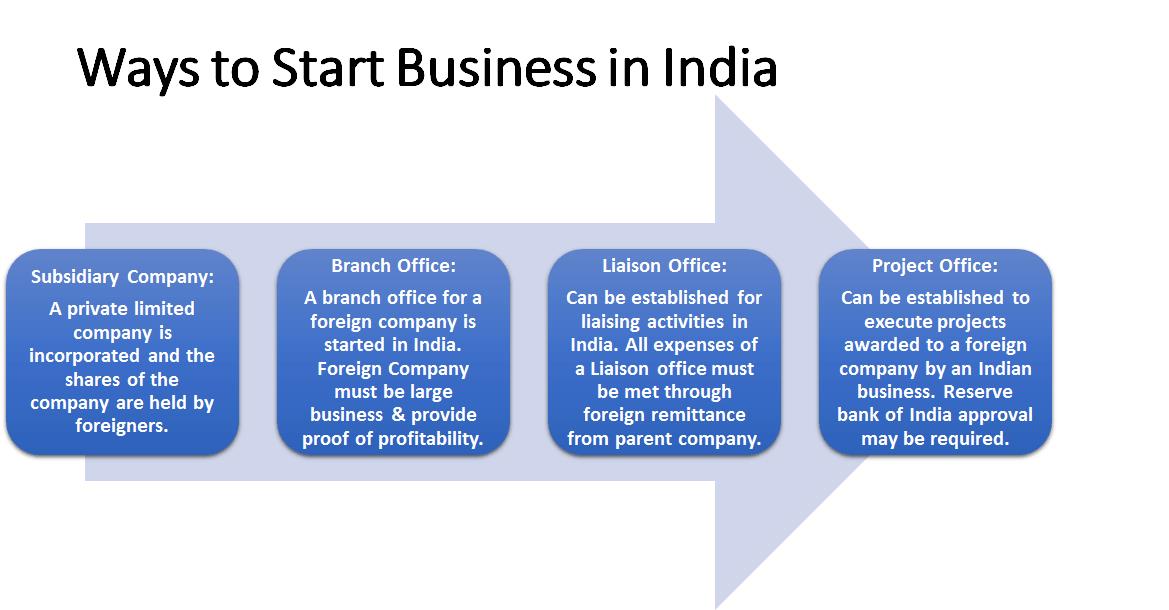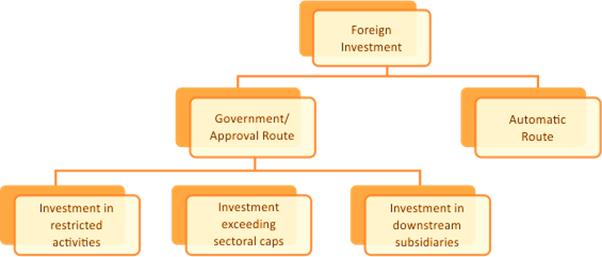MADKARTER TECHNOLOGIES PVT LTD
Business Incubation
With continuous efforts and hardwork, we’ve grown into an integrated investment solution provider with expertise in consulting, research, access services and investment incubation.
Established in 2016, Madkarter focuses on the Indian investment Services sector. With continuous efforts and hardwork, it has grown into an integrated investment solution provider with expertise in consulting, research, access services, and investment incubation. In our journey so far, we have been in business with various Chinese companies, private companies, and emerging start-ups.
At Madkarter Technologies Pvt. Ltd, we believe in facilitating clients at every step in order to succeed and establish themselves in the growing Indian market. We analyse in a detailed manner India’s social economy and the investment opportunities therein before setting up a new business.
- Our experts start with analysing your business scope, operations and objectives further to which we strategies the best legal and practical path forward for cost-efficient and effective results.
- We help our clients in completing all mandatory regulatory procedures, qualifications and basic operations for entering India, thereby improving the ease of doing business in India for our clients.
- Madkarter provides A-to-Z solutions for companies to bring their business to India. From inception to final deal closure, we streamline all processes so that you can readily commence your business.
Services Provided by Madkarter
1. Making your Business Plan
Our experts help to devise business plans for International enterprises and liaise with them on how to effectively initiate their operations in India through a detailed roadmap study of the business. These studies are focused on empowering our clients and provide them with a clear outline on how to run a robust business plan in India while conforming to all mandated legal and licensing requirements.


2. Securing Land for Your Business
Madkarter has an extensive database that assists in identifying the most lucrative land/property for you to set up your project. We shortlist appropriate land/properties for our clients so that the process of land identification is simplified and you are shown only the best for your business set up.
Once the land is identified, we facilitate the final negotiations between the clients and the land owners so that the land lease can be signed on time and you can commence your project.
3. Acquiring Factory Licenses
After the lease deed is signed, we also expedite the acquisition of mandatory licenses and sanctions. Some of the requisite licenses & sanctions are mentioned below:
- Building plan approval
- Factory License
- NOC from the Fire Department,
- Obtaining Sewer/Water Connection
- Obtaining Electricity Connection
- Approvals from Pollution Control Department
- NOC from Explosives Department.
- Registration with Labour Department
- Registration of Provident Fund
- Registration with ESI
In addition to these we also look into other licenses or permissions needed by our clients (depending on the scope of work) for them to start their businesses.


4. Setting Up Your Company
We, at Madkarter ensure that you set up your company by making use of the best industrial practices which includes provision of all the relevant & necessary tools and resources required for your business. We also ensure that you take control over your businesses operations, revenue and profit targets with a team of experts who guide you from the inception till the running of the business.
5. Opening a Bank Account
We help in opening bank accounts in India by sorting out all relevant details and documents so that you have a running bank account as soon as you travel to our country.


6. Company Registrations
Setting up a business in India for an International company is time consuming and requires sectorial competence. We have experts assisting you with all mandatory registrations.
We help you with the registration of the company, acquiring PAN, TAN and GST registrations, and ensure that all procedures are followed as per the Indian Companies Act 2013.
Frequently Asked Questions
Major Requirements for incorporation of company in India:
To start a company in India, a minimum of two persons and an address are required in India. A company at least should have two directors and minimum of two shareholders. According to Indian rules and regulations, one of the director’s should be both a citizen and as well as resident of India. In this case, 100% of the shares of the Indian company can be held by foreign nationals/ NRI. The address in India is served as the registered office of the company. Foreign companies establish their offices in metropolitan cities like Delhi, Bangalore, Mumbai and Chennai, etc.
What are the main advantages of doing business in India?
- Wholly owned subsidiary- permits 100% Foreign Direct Investment under the FDI policy.
- Joint Venture– with an Indian partner, for example, strategic partnerships with Indian partner organizations
- Limited Liability Partnership (LLP)- a new arrangement of business structure in India, that combines the advantages of a company with the benefits of organizational flexibility associated with a partnership.
- Skilled Workforce: Highly-rated human capital base.
- Growth Potential: The world’s largest democracy and the 2nd fastest-growing major economy.
- Healthy Legal System: Efficient legal and judicial system, improved enforcement of laws.
- Work Ethics: Professional manner of working and willing to learn.
- Stability of Government: Political stability is vital to foreign investments.
- Extensive Trade Network: Trade network backed by regional and bilateral free trade agreements with numerous trading partners helps leverage investor’s role.
- Competitive Tax System: Competitive tax regime and comprehensive network of Tax Treaties, further modified by the introduction of Direct Taxes Code and the Goods and Service Tax – single tax for the whole nation
What options are available to foreign companies for entering the Indian market?
- As an incorporated entity
- Liaison Office
- Branch Office
- Joint Venture
- Wholly owned subsidiaries
- As an office of a foreign entity through
A foreign company can begin processes in India by incorporating a company under the companies Act, 1956 through registration of company or establishing a branch or liaison office.
Starting a private limited company is the coolest and fastest way to set up in India. FDI of up to 100% into a public limited or private limited is permitted under the FDI policy.
Other entry strategy is to open a liaison office, branch office and Project Office. In this case, approval from RBI or central government is mandatory. Therefore, the time required is much more than setting up a private limited company.

What are the types of business entities that can be set up in India? What is the process, time and cost for setting up each?

Automatic Route
Under the automatic route, FDI up to 100% is allowed in all activities/sectors, except in some of the cases which requires prior approval of the government.
Let’s have a look at the subdivisions where FDI is not allowed in India, under the Automatic Route as well as Government Route?
FDI is forbidden under Government as well as Automatic Route for the following sectors:
- Lottery Business
- Retail Trading (except single brand product retailing)
- Atomic Energy
- Housing and real estate business (except development of townships, construction of residential/commercial premises, roads or bridges to the extent specified in Notification No. FEMA 136/2005-RB dated July 19, 2005)
- Gambling and Betting
- Business of Chit Fund
- Trading in Transferable Development Rights (TDRs).
Government Route
FDI in activities not covered under the automatic route requires prior Government approval and are considered by the Foreign Investment Promotion Board (FIPB), Ministry of Finance. Request can be made through Form FC-IL, which can be copied from www.dipp.gov.in.
What are the next steps, once the investment is made under the Automatic Route or with Government approval?
On receipt of money for investment:
- Within 30 days of receipt of money from the non-resident investor, the Indian company will report to the regional office of the Reserve Bank of India, containing details such as:
- Name and address of the foreign investor or investors
- Date of receipt of funds
- Name and address of the authorised dealer
- Details of the Government approval, if any.
Upon issue of shares to non-resident investors:
Within 30 days from the date of issue of shares, a report in Form FC-GPR, PART A together with the following documents should be filed with the concerned regional office of the Reserve Bank of India.
- Certificate from the company secretary of the company
- The proposal is within the sectoral policy under the automatic route of RBI and it fulfils all the conditions laid down for investments under the Automatic approval route.
What procedure is to be followed for obtaining Reserve Bank's approval for opening a Liaison Office?
- A Liaison office can carry on only liaison activities and is not allowed to undertake any business activity in India and cannot earn any income in India. Expenses of such offices are to be met completely through inward payments of foreign exchange from the Head Office abroad.
- The companies eager of opening a liaison office in India can make an application in form FNC-1 along with the documents mentioned therein to Foreign Investment Division, Reserve Bank of India, Central Office, Mumbai.
- Permission to set up such offices is initially granted for a period of 3 years and this may be extended from time to time by the Regional Office.
What is the procedure for setting up Project Office?
- Foreign companies have settled projects in India by Indian entities. General Permission has been granted by Reserve Bank of India
- The projects are cleared by an appropriate authority
- However, if the above criteria are not met, such applications are forwarded to Central Office of the Foreign Exchange Department of the Reserve Bank at Mumbai for approval.
What is the procedure for setting up branch office?
- Reserve Bank permits companies engaged in manufacturing and trading activities abroad to set up Branch Offices in India for the following purposes:
- A branch office is not allowed to carry out manufacturing, processing activities directly/indirectly. A Branch Office is also not allowed to undertake Retail Trading activities of any nature in India.
- To represent the parent company in different issues in India e.g. acting as buying/selling agents in India.
- To direct research work in the region in which the parent organization is locked in
- Rendering professional or consultancy services
- Rendering administrations in Information technology and programming in India
- To undertake export and import exercises and exchanging on discount premise
- To advance possible specialized and financial collaboration joint efforts between the Indian organizations and overseas companies.
- Rendering technical support to the items provided by the parent/Group organizations.
- Branch Offices must submit Activity Certificate from a Chartered Accountant on an annual basis to the Central Office of FED.
- Permission for setting up branch offices is granted by the Reserve Bank of India. Reserve Bank of India considers the track record of the Applicant Company, existing trade relations with India, the activity of the company proposing to set up office in India as well as the financial position of the company while scrutinizing the application.
Can a foreigner invest through Preference Shares? What are the regulations applicable in case of such investments?
- Foreign investment through preference shares is treated as foreign direct investment. Foreign investment in preference share is considered as part of share capital.Preference shares to be treated as foreign direct equity for purpose of sectoral caps on foreign equity, where such caps are prescribed, provided they carry a conversion option. If the preference shares are structured without such conversion option, they would fall outside the foreign direct equity cap.
Can a foreigner set up a partnership/proprietorship concern in India?
What are the key businesses related legislations in India?
- The Companies 2013 Act:this act governs the incorporation management, restructuring and dissolution of companies
- The Competition Act(which regulates combinations (merger control) and anti-competitive behaviour)
- The Income Tax Act(which prescribes the tax treatment of dividend, capital gains, mergers, demergers and slump sales).
- The Indian Contracts Act: this act basically lays down the general principles relating to the formation and enforceability of contracts
- The FEMA (Foreign Exchange Management Act, 1999):it regulates the inflow and outflow of foreign exchange and investment into/from, India including sector-specific requirements
- The SEBI Act (Securities and Exchange Board of India):SEBI has consistently tried to lay down market rules in line with the best market practices. It enjoys vast powers of imposing penalties on market participants, in case of a breach
- The SCRA (Securities Contracts Regulation Act, 1956):it governs listing and trading of securities on stock exchanges in India and the Listing Agreement with stock exchanges
What are the regulations regarding Portfolio Investments by NRIs/PIOs?
- NRIs and Persons of Indian Origin can purchase or sell shares of Indian companies on stock exchanges under Portfolio Investment Scheme. For this purpose, the NRI or PIO apply to a designated branch of a bank. All sale or purchase transactions are to be directed through the chosen branch.The sale proceeds of the repatriable investments can be credited to the NRE/NRO accounts of the NRI/PIO whereas the sale proceeds of non-repatriable investment can be credited only to NRO accounts.The sale of shares will be subject to payment of applicable taxes.NRIs and Persons of Indian Origin can buy or offer offers of Indian organizations on stock trades under Portfolio Investment Scheme. For this reason, the NRI or PIO apply to an assigned part of a bank. All deal or buy exchanges are to be coordinated through the picked branch.
The deal continues of the repatriable ventures can be credited to the NRE/NRO and so forth records of the NRI/PIO while the deal continues of non-repatriable speculation can be attributed just to NRO accounts.
The offer of offers will be liable to instalment of appropriate expenses.
As of January 2019, India allows 100% FDI in marketplace model of e-commerce; however, there is no FDI for inventory driven models.
Foreign companies can sell their goods and services to other businesses since 2015 (with 100% FDI permitted under automatic route for B2B (Business to Business) e–commerce in India).
However, there are some restrictions on B2C with a few limited exceptions like:
- Manufacturers offering items produced in India can offer through e-commerce retail
- Indian makers offering their own single brand items through e-commerce retail
- Single brand trading entities who are operating through brick and mortar stores
- Business retail
Key Take-away:
- The most important point is that all Indian and foreign companies should comprehend that the organizations set up in India are consolidated under the Companies Act 1956.
- All foreign companies must consent to specific standards shaped by the Companies Act, 1956.
- A foreign company which intends to set up business in India has two noteworthy alternatives: Joint ventures and wholly owned subsidiaries. A foreign company can set up their activities in India by getting into a joint endeavour with an Indian organization or wholly owned subsidiary in sectors where there is 100% foreign direct investment.
- FDI is not permitted in certain sector such as real estate, lottery, gambling, atomic energy, etc.
- A foreign investor can either incorporate a private limited company or a public limited Regardless of whether an organization is public or private, only the registrar of companies (ROC) has jurisdiction. Each state in India has its own ROC.
At Madkarter, we strive to make the cumbersome process of setting up your business in a new country as smooth and hassle-free as possible. Our consultants and partners work tirelessly to ensure that the process of business incubation is both satisfactory and profitable for all invested parties.
